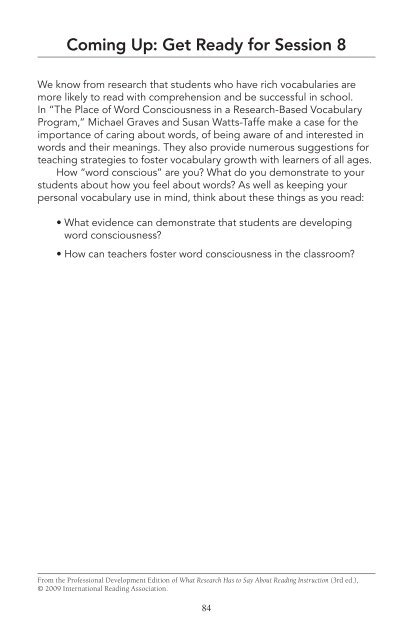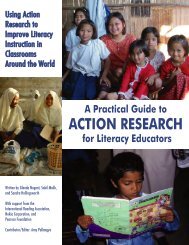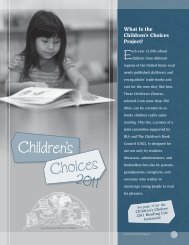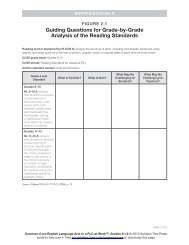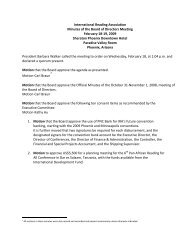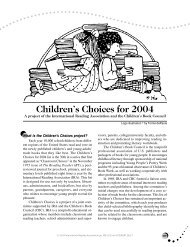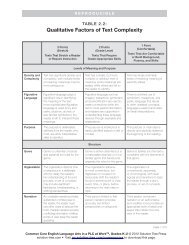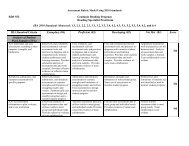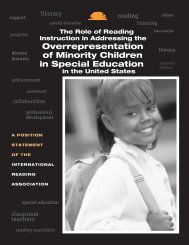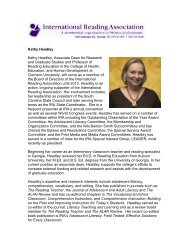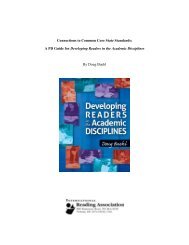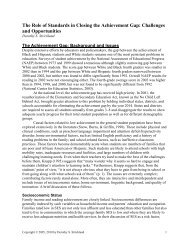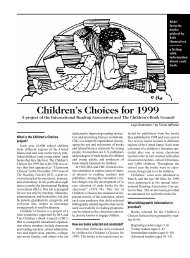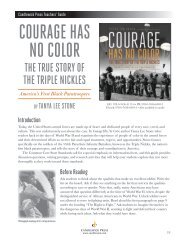What Research Has to Say About Reading Instruction - International ...
What Research Has to Say About Reading Instruction - International ...
What Research Has to Say About Reading Instruction - International ...
Create successful ePaper yourself
Turn your PDF publications into a flip-book with our unique Google optimized e-Paper software.
Coming Up: Get Ready for Session 8<br />
We know from research that students who have rich vocabularies are<br />
more likely <strong>to</strong> read with comprehension and be successful in school.<br />
In “The Place of Word Consciousness in a <strong>Research</strong>-Based Vocabulary<br />
Program,” Michael Graves and Susan Watts-Taffe make a case for the<br />
importance of caring about words, of being aware of and interested in<br />
words and their meanings. They also provide numerous suggestions for<br />
teaching strategies <strong>to</strong> foster vocabulary growth with learners of all ages.<br />
How “word conscious” are you? <strong>What</strong> do you demonstrate <strong>to</strong> your<br />
students about how you feel about words? As well as keeping your<br />
personal vocabulary use in mind, think about these things as you read:<br />
• <strong>What</strong> evidence can demonstrate that students are developing<br />
word consciousness?<br />
• How can teachers foster word consciousness in the classroom?<br />
From the Professional Development Edition of <strong>What</strong> <strong>Research</strong> <strong>Has</strong> <strong>to</strong> <strong>Say</strong> <strong>About</strong> <strong>Reading</strong> <strong>Instruction</strong> (3rd ed.),<br />
© 2009 <strong>International</strong> <strong>Reading</strong> Association.<br />
84


